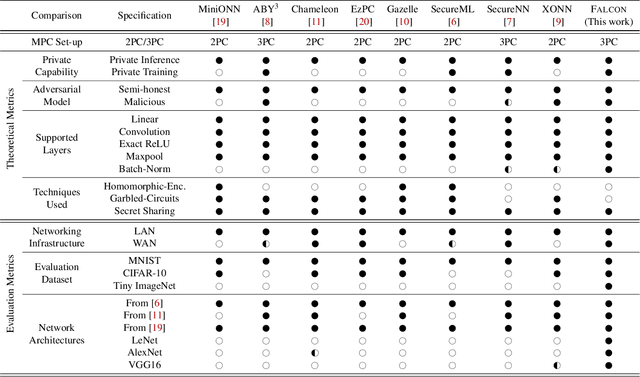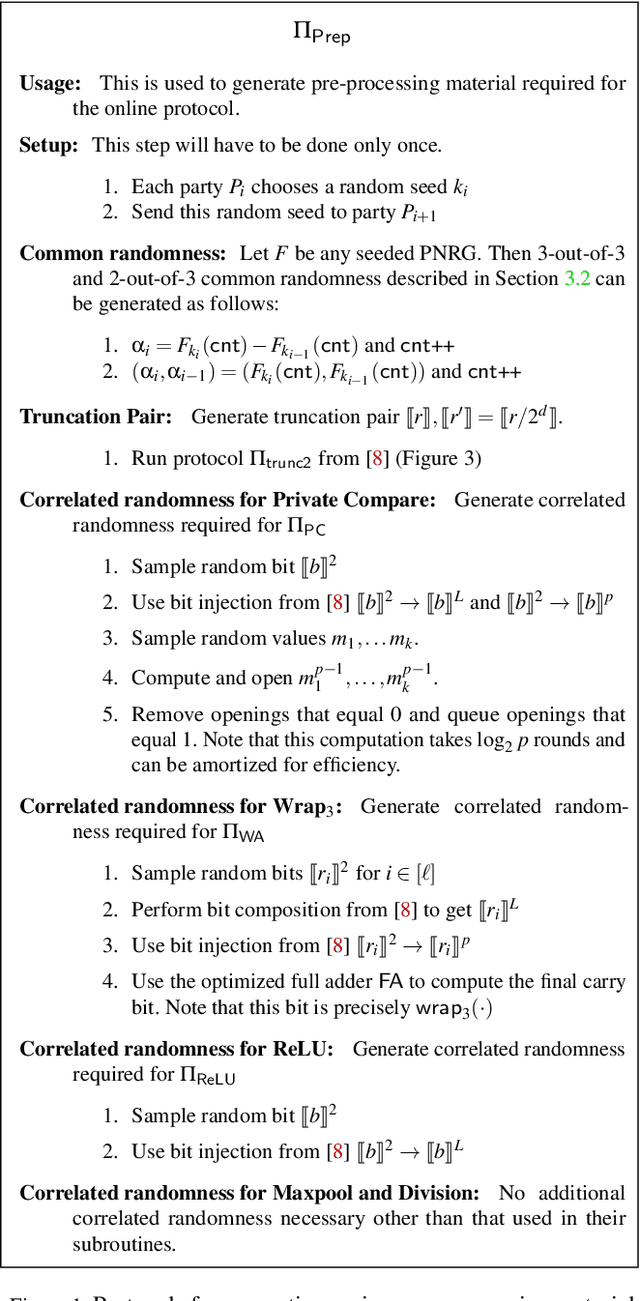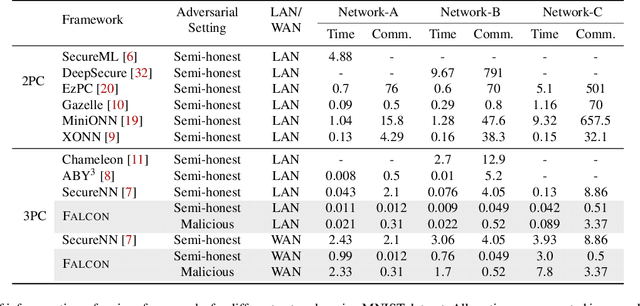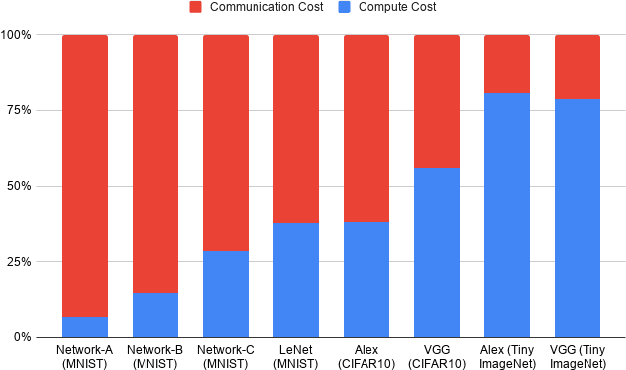Tal Rabin
Flamingo: Multi-Round Single-Server Secure Aggregation with Applications to Private Federated Learning
Aug 19, 2023Abstract:This paper introduces Flamingo, a system for secure aggregation of data across a large set of clients. In secure aggregation, a server sums up the private inputs of clients and obtains the result without learning anything about the individual inputs beyond what is implied by the final sum. Flamingo focuses on the multi-round setting found in federated learning in which many consecutive summations (averages) of model weights are performed to derive a good model. Previous protocols, such as Bell et al. (CCS '20), have been designed for a single round and are adapted to the federated learning setting by repeating the protocol multiple times. Flamingo eliminates the need for the per-round setup of previous protocols, and has a new lightweight dropout resilience protocol to ensure that if clients leave in the middle of a sum the server can still obtain a meaningful result. Furthermore, Flamingo introduces a new way to locally choose the so-called client neighborhood introduced by Bell et al. These techniques help Flamingo reduce the number of interactions between clients and the server, resulting in a significant reduction in the end-to-end runtime for a full training session over prior work. We implement and evaluate Flamingo and show that it can securely train a neural network on the (Extended) MNIST and CIFAR-100 datasets, and the model converges without a loss in accuracy, compared to a non-private federated learning system.
FALCON: Honest-Majority Maliciously Secure Framework for Private Deep Learning
Apr 05, 2020



Abstract:This paper aims to enable training and inference of neural networks in a manner that protects the privacy of sensitive data. We propose FALCON - an end-to-end 3-party protocol for fast and secure computation of deep learning algorithms on large networks. FALCON presents three main advantages. It is highly expressive. To the best of our knowledge, it is the first secure framework to support high capacity networks with over a hundred million parameters such as VGG16 as well as the first to support batch normalization, a critical component of deep learning that enables training of complex network architectures such as AlexNet. Next, FALCON guarantees security with abort against malicious adversaries, assuming an honest majority. It ensures that the protocol always completes with correct output for honest participants or aborts when it detects the presence of a malicious adversary. Lastly, FALCON presents new theoretical insights for protocol design that make it highly efficient and allow it to outperform existing secure deep learning solutions. Compared to prior art for private inference, we are about 8x faster than SecureNN (PETS '19) on average and comparable to ABY3 (CCS '18). We are about 16-200x more communication efficient than either of these. For private training, we are about 6x faster than SecureNN, 4.4x faster than ABY3 and about 2-60x more communication efficient. This is the first paper to show via experiments in the WAN setting, that for multi-party machine learning computations over large networks and datasets, compute operations dominate the overall latency, as opposed to the communication.
 Add to Chrome
Add to Chrome Add to Firefox
Add to Firefox Add to Edge
Add to Edge